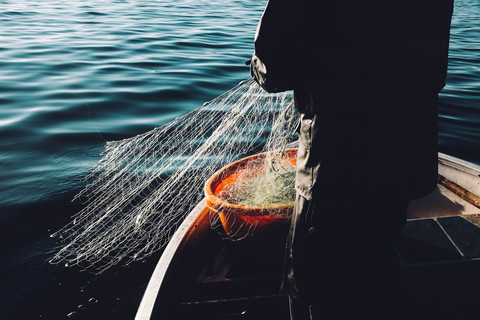[ad_1]

EU fisheries ministers agreed on Thursday (17 December) on fishing opportunities for 2021 for the stocks managed by the EU, and provisional quotas for those stocks shared with the UK – pending on the outcome of Brexit negotiations.
Following two days of negotiations, the European Council agreed on catch limits for over 200 commercial fish stocks in the Atlantic, the North Sea, the Mediterranean and the Black Sea and, the deep-sea.
However, some of these quotas are still above sustainable limits issued by scientific bodies, increasing the risk of further over-exploitation of fish stocks.
For the fish stocks managed exclusively by the EU, approximately one-third are considered to be above the sustainable limits provided by the International Council for the Exploration of the Sea (ICES).
These include the southern hake, and sole in the west of Ireland, and pollack in the Bay of Biscay.
Additionally, EU ministers also decided to set out by-catch quotas for roundnose grenadier and cod in the Kattegat, ignoring the ICES’ advice about the need to stop fishing these species because of their poor conservation status.
The ministers’ decision to continue overfishing in Europe’s own waters is “shameful,” said Rebecca Hubbard from NGO Our Fish.
“Whilst EU leaders are running around signing pledges, waxing lyrical about revolutionising our relationship with nature and taking climate action, EU fisheries ministers have signed off on another year of overfishing,” she added.
Meanwhile, ministers also decided to water down the commission proposal for reducing demersal, or seabed, fishing in the Mediterranean Sea from 15 percent to just 7.5 percent – as part of the commitment for an overall reduction of up to 40 percent by 2025.
EU commissioner for oceans and environment, Virginijus Sinkevičius, regretted that national ministers “were not ready to fully take into account the scientific advice and agree on more ambitious effort reductions” that would have helped to restore the fish stocks to sustainable levels.
Brexit excuses
For the remaining fish stocks shared with the UK, the provisional quotas include a 25 percent roll-over of the existing 2020 fishing opportunities for the first three months of 2021 – ensuring continuity in fishing despite Brexit .
“The EU’s fleet has suffered from the Covid-19 crisis and is facing uncertainty due to still ongoing EU-UK negotiations. But we also needed to give our fishermen and women a perspective beyond 2021,” said Sinkevičius.
The agreed measures would complement last week’s EU commission contingency proposal in case there is no deal.
While this rollover is a temporary measure, many of the provisional limits are still too high.
As a result, ministers will have to apply significant cuts after March 2021 to ensure that sustainable levels are met by the end of the year.
Given that the position of the UK is still unclear, the agreement raises questions about how shares will be reallocated retrospectively after March 2021.
“While I understand the need for pragmatic measures to set preliminary TACs [Total Allowable Catches or quotas] for 2021, this should not be an excuse for ignoring scientific advice to avoid overfishing”, said Rainer Froese, a marine biologist at GEOMAR Helmholtz Centre for Ocean Research in Germany.
“A rollover approach that leads to overfishing in the first quarter will be difficult to reverse later on,” he warned.
For his part, the director of the Centre for Aquatic Sciences and Fisheries at Agrocampus Ouest, Didier Gascuel, called it “unacceptable” that Brussels is proposing to not follow the scientific advice for at least the first quarter of 2021.
“For some stocks, it will be too late, with detrimental effects on fish populations, fishers and marine ecosystems,” he said.
Fisheries is one of the critical issues in the negotiations on a new partnership agreement between the EU and the UK.
[ad_2]
Source link